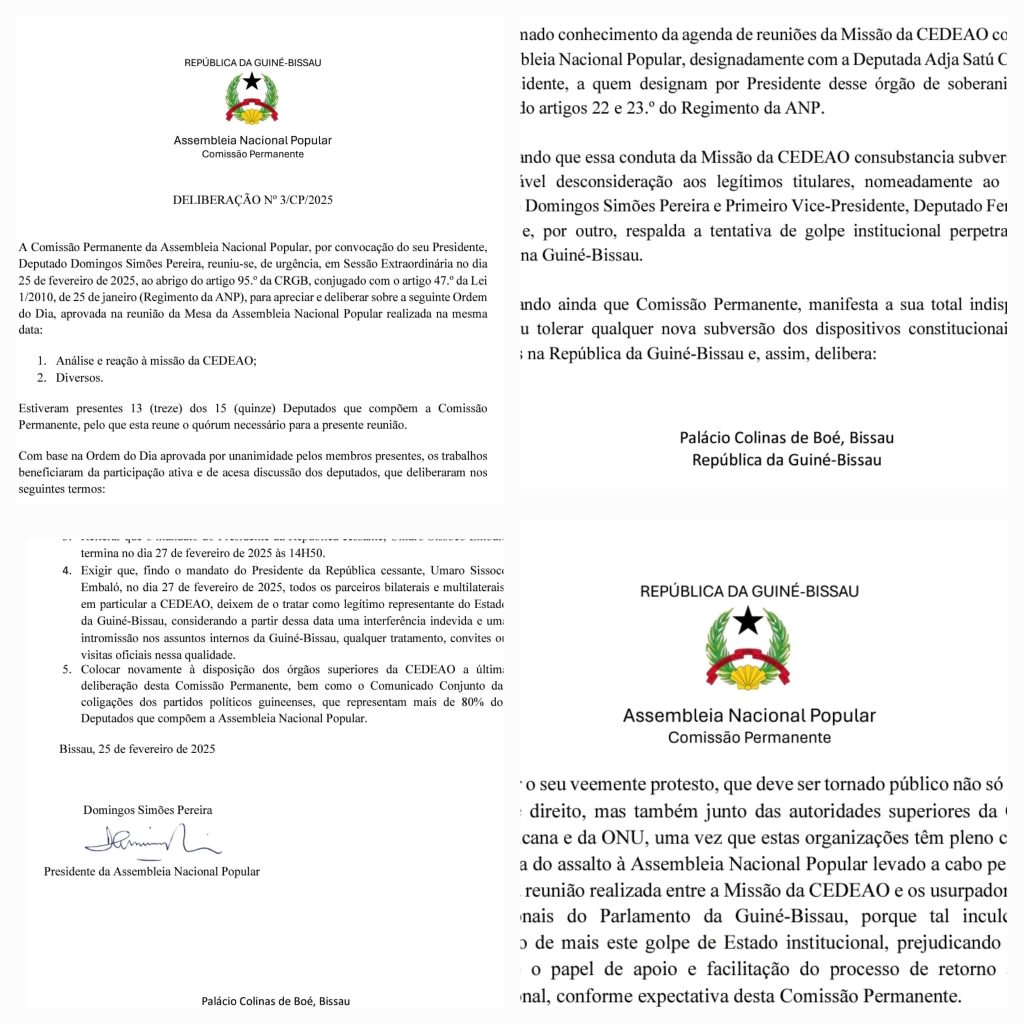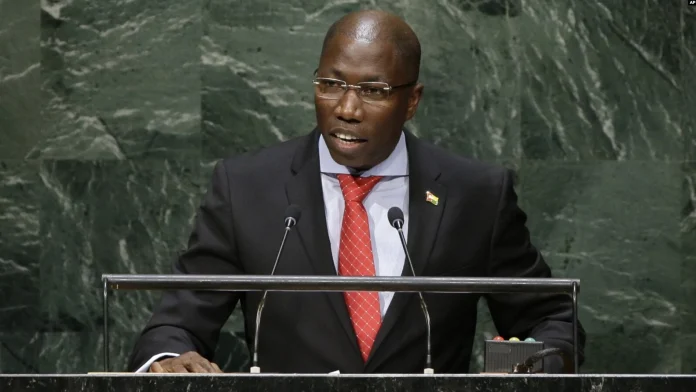The National Assembly Denounces an Institutional Coup and Demands an End to International Recognition of the Outgoing President
Soldecanarias.net / adeje
Political instability in Guinea-Bissau has reached a critical point. The Standing Committee of the National People’s Assembly (ANP) has issued a strong resolution accusing the Economic Community of West African States (ECOWAS) of supporting an «institutional subversion» and demanding that, as of February 27, President Umaro Sissoco Embaló no longer be recognized as the legitimate Head of State.
In an extraordinary meeting, 13 of the 15 members of the Standing Committee discussed the recent ECOWAS mission in the country, denouncing that the regional organization had meetings with individuals they consider to be «usurpers of constitutional power.» Among them, they mentioned Deputy Adja Satú Camará, whom they accuse of illegally occupying the presidency of Parliament in violation of the legislative regulations.

A Break with ECOWAS and the International Community
The ANP has taken a confrontational stance against ECOWAS, the African Union, and the United Nations, accusing them of being fully aware of the assault on Parliament by Embaló’s regime. In its resolution, the Parliamentary Committee not only rejects the meetings between ECOWAS and the actors it deems illegitimate but also demands that international organizations cease any recognition of Embaló after the end of his mandate on February 27.
«Umaro Sissoco Embaló’s mandate ends on February 27 at 2:50 PM. From that moment onward, any recognition or official invitation in his capacity as Head of State will be considered an unacceptable interference in the internal affairs of Guinea-Bissau,» the resolution states.
A New Chapter of Instability?
The current crisis is the culmination of months of tension between Parliament and the Executive. Since the 2022 coup, Guinea-Bissau has experienced institutional deterioration marked by a power struggle between President Embaló and the Parliament, which is dominated by the opposition. The international community, particularly ECOWAS, has attempted to mediate the crisis, but its role is increasingly questioned by Guinean legislators.
The scenario after February 27 remains uncertain. If Embaló insists on remaining in power beyond his mandate, Guinea-Bissau may face a new period of diplomatic isolation and a worsening of its already fragile political stability. On the other hand, Parliament’s firm stance, representing over 80% of the deputies, could exert unprecedented pressure on the international community to reassess its approach to the country’s crisis.
Meanwhile, Guinean citizens watch the unfolding events with concern, aware that the institutional crisis could directly impact the nation’s economic and social stability.
Conclusion: A Historic Crossroads
Guinea-Bissau finds itself at a decisive moment. Parliament’s firm rejection of ECOWAS and its opposition to Embaló’s continued rule represent an unprecedented challenge in the country’s political history. The international community will be forced to make a decision: continue recognizing Embaló or support a transition process that respects the will of the National Assembly.
What happens in the coming days will not only define Guinea-Bissau’s political future but also shape the role of international organizations in resolving institutional crises in West Africa.



